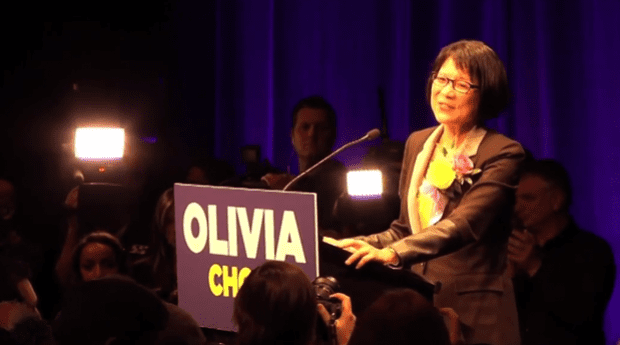If you’re the sort of person who gets a lot of news from Twitter, it was going to be a very different election. Olivia Chow would lead a massive horde of hip young progressive thinkers to victory and the city would welcome a slew of new progressive councillors — Andray Domise, Idil Burale, Keegan Henry-Mathieu among them — who had taken down some of the suburbs’ most conservative and unpalatable councillors.
Alas, in reality, barely one in five Torontonians cast their ballot for Chow, and none of the high-profile council challengers I mentioned scored even 10 percent of the vote in their wards.
Why such a discrepancy, when the left seemed much more competitive heading into E-day? It’s a particular quirk of social media, which users tend to curate into an echo chamber by the tendency to follow people who not only already agree with them, but also have become speakers and activists on things they agree with. Needless to say, this subset of the population is hardly representative of a community of people who generally have too much stuff going on to make political activism central in their lives.
And that’s the problem we’re seeing with progressive movements in Ontario — sometime soon, the progressive movement needs to learn the difference between campaigning and squatting over a vanity mirror, cooing lovingly into their own nether regions.
I suspect if the shadow organization of backroom players who put Chow forward as the sole standard bearer of the left in this election had talked to anyone outside of the downtown core first, her candidacy would’ve been fired out of a cannon into the nearest dung heap. Like it or not, to suburbanites, Chow was a toxic mix of signifiers, only some of them racist and sexist. She would’ve needed to move heaven and earth to change deeply entrenched perceptions about her before the election. Instead, she offered a poorly communicated campaign seemingly designed to piss off suburban voters: cancelling the Scarborough subway and offering no other improvements to local transit riders, spending a hundred million on rebuilding intersections to slow down cars, thousands of shiny new social-housing units downtown, and even the emphasis her campaign placed on the Pride parade must’ve seemed like she was on another planet to a voter in Rexdale or Agincourt.
Tellingly, it wasn’t until she was far down in the polls that Chow even spoke of any kind of vision for what a city run by her would look like.
It’s part of a troubling trend for progressives in Toronto: losing the mayoral election, the decimation of the NDP in the GTA in the provincial election in June, NDP losses in every federal by-election in the city since 2012, and polls showing declining NDP fortunes heading into the next federal election. Not to mention the political whiplash of provincial Liberals campaigning on being the true progressive option in June, then lining up en masse behind conservative Tory for mayor in July because they wouldn’t be able to work with progressive Chow.
The progressive movement desperately needs to start reaching out beyond the urban core, talking to people who aren’t already predisposed to vote for them, and articulating a clear vision for governance that takes into account their concerns.
If residents are complaining that taxes are too high, that traffic is a nightmare and transit takes forever, then progressives have to address that without speaking condescendingly of the virtues of paying tax and taking the bus. If they complain that their children have no safe places to hang out after school and cast their eyes jealously at downtown libraries that are a 15-minute walk from each other, maybe progressives ought to open up about lingering unfairness in our megacity.
Astonishingly, queer issues are starting to no longer be wedge issues — while many battles remain, conservatives in Canada rarely use queer antipathy to fire up their bases, so much as they point to the emphasis progressives put on queer issues as evidence that they’re out of touch with the everyday concerns of the vast majority. And there may be some truth to that charge.
Though it may piss off queer activists to see progressives downplay our issues on the campaign trail, we ought to remember that they can do a lot more for us in office than in opposition.
Rob Salerno is a freelance contributor to Xtra.


 Why you can trust Xtra
Why you can trust Xtra


